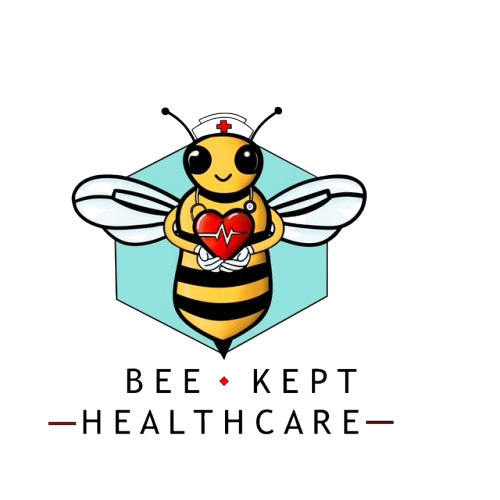FAQ
Bee Kept HomeCare- FAQs
Find answers to your questions about our services, ensuring you get the support you need quickly and clearly.

What is the Georgia Pediatric Program (GAPP)?
GAPP is a Medicaid-funded program that provides free in-home nursing and personal care services to eligible children under 21 with qualifying medical needs.
How do I know if my child qualifies?
If your child is under 21, has Medicaid, and has a medical need such as cerebral palsy, spina bifida, or other physical/developmental conditions, they may qualify. Fill out our intake form, and we’ll help determine eligibility.
How long does the approval process take?
Intake and evaluation typically take up to 30 days. Once approved, services can begin shortly after.
Do I have to pay for these services?
No, if your child qualifies, services are fully covered through Medicaid at no cost to you.
What types of care does BeeKept Healthcare provide?
We provide both skilled and unskilled care, including medication administration, hygiene support, mobility assistance, G-tube and tracheostomy care, and more.
Can I be involved in my child’s care plan?
Yes! Parents and caregivers are essential partners in creating a personalized plan of care and service goals.
What areas do you serve?
We Serve all patrons in the following Counties in Georgia: Fulton, DeKalb, Cobb, Fayette, Clayton, Henry, Coweta and Gwinnett.
Compassionate In-Home Care for Young Lives
Explore the highlights of our specialized services.
Medication administration
Ensuring the proper delivery of prescribed medications to patients, including timing and dosage.
Mobility and wheelchair support
Assisting patients with movement, including support with walking or using a wheelchair.
Bathing, dressing, and hygiene assistance
Helping patients with personal care tasks like bathing, dressing, and maintaining hygiene.
Turning, repositioning, and bed linen changes
Helping patients change positions to prevent bedsores and ensuring clean bedding.
Vital signs monitoring
Regularly checking and recording key health indicators such as heart rate, blood pressure, temperature, and respiration.
Tracheostomy and G-tube care
Providing specialized care for patients with a tracheostomy or feeding tube, ensuring their comfort and safety.
Respiratory treatments and wound care
Administering treatments to help with breathing difficulties and caring for wounds to promote healing.
Observation and interdisciplinary coordination with your child’s care team
Monitoring the patient’s condition and collaborating with doctors, nurses, and other specialists for comprehensive care.
Help with Activities of Daily Living (ADLs)
Assisting patients with routine tasks like eating, dressing, and bathing to support their daily functioning.
Compassionate Care for Every Milestone
Discover the benefits of in-home care tailored to your child’s needs and well-being.
